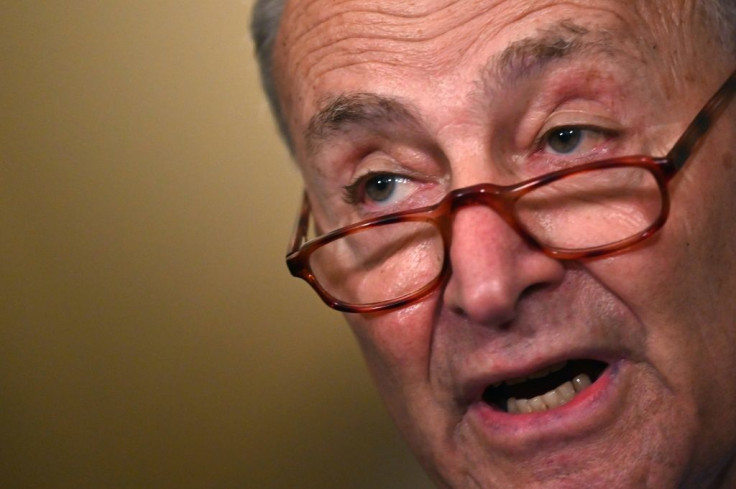Gas Price Spike Sends Stocks Sliding
A 25 percent jump in European gas prices to record peaks on Wednesday fanned inflation concerns, sending equities sliding as investors worried higher prices could choke the global economic recovery.
Frankfurt, London and Paris equity markets lost around two percent at one point on worries that high prices for gas along with oil could accelerate inflation, forcing tighter global monetary policy that would pull the rug out from the global economic recovery from the Covid-19 pandemic.
Equity markets also fell at the start of trading in the US, where concerns about the pace of economic recovery are being accentuated by political deadlock that could halt plans to step up government spending and even trigger a US debt default.
"It's panic and fear with winter just around the corner," Commerzbank analyst Carsten Fritsch told AFP.
Europe's Dutch TTF gas price rocketed as high as 162.12 euros per megawatt hour, while UK prices soared to 407.82 pence per therm before giving up their gains.
Gas demand is also heightened in Asia, and particularly from China.
"Natural gas prices have climbed to new peaks ... as insufficient levels of inventories ahead of the winter season drive concerns for a spike in inflation and energy prices for consumers," said XTB analyst Walid Koudmani.
"These supply constraints could translate into higher costs of fuel moving into the winter months, a prospect which could further slow down economic recovery and worsen moods across markets."
At the same time, oil has vaulted higher after OPEC and other major producers opted this week against increasing output by more than previously agreed -- despite tightening supplies and resurgent demand.
Brent oil soared to a fresh three-year peak at $83.47 per barrel, and New York's light sweet crude hit a seven-year pinnacle at $79.78, before turning lower.
Runaway gas prices are widely expected to ratchet up demand for crude, further spooking markets.
"To put it into context, benchmark gas prices are trading at the equivalent of more than $200 per barrel of oil," said PVM analyst Stephen Brennock.
"This should further encourage gas-to-oil switching and exacerbate the current supply deficit in the oil market."
In foreign exchange, the euro hit a 14-month low at $1.1529 on growing hopes of US monetary policy tightening.
The US Federal Reserve is widely expected to soon announce it will begin cutting back its massive bond-buying programme, with interest rates possibly rising as soon as next year.

Better-than-forecast private hiring data raised expectations that the government's official jobs data due out Friday will be sufficiently good for the Fed to push ahead to begin reducing stimulus in October.
Other central banks have also hinted at moves soon or have already acted.
On Wednesday, the Reserve Bank of New Zealand announced a first rate rise in seven years, joining the banks of South Korea and Norway.
The crisis at Chinese developer Evergrande continues to cast a shadow as the firm drowns in more than $300 billion of debt and struggles to find the money to stay afloat.
London - FTSE 100: DOWN 1.0 percent at 7,003.40 points
Frankfurt - DAX: DOWN 1.5 percent at 14,974.79
Paris - CAC 40: DOWN 1.4 percent at 6,483.19
EURO STOXX 50: DOWN 1.4 percent at 4,009.61
New York - Dow: DOWN 0.8 percent at 34,033.73
Tokyo - Nikkei 225: DOWN 1.1 percent at 27,528.87 (close)
Hong Kong - Hang Seng Index: DOWN 0.6 percent at 23,966.49 (close)
Shanghai - Composite: Closed for a holiday
Euro/dollar: UP at $1.1541 from $1.1539 at 2100 GMT on Tuesday
Pound/dollar: DOWN at $1.3563 from $1.3629
Euro/pound: DOWN at 85.07 pence from 85.10 pence
Dollar/yen: DOWN at 111.41 yen from 111.46 yen
Brent North Sea crude: DOWN 1.0 percent at $81.74 per barrel
West Texas Intermediate: DOWN 1.0 percent at $78.12
© Copyright AFP {{Year}}. All rights reserved.





















